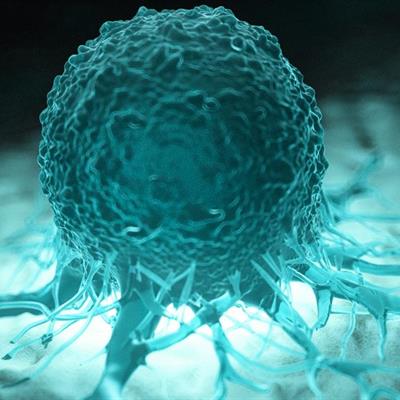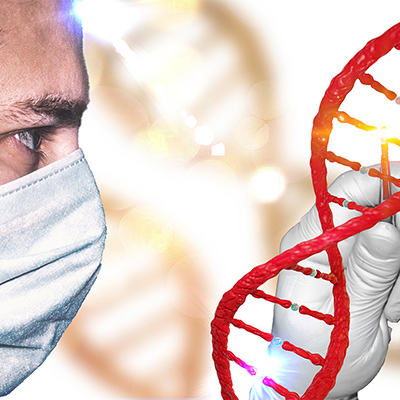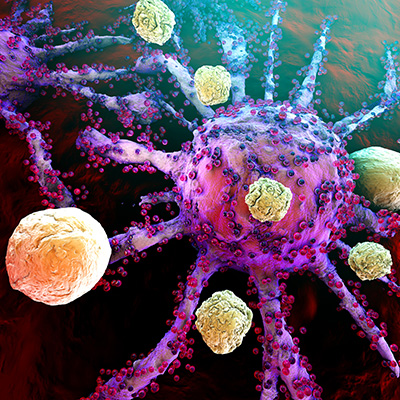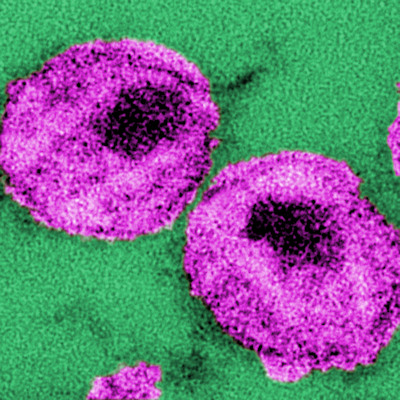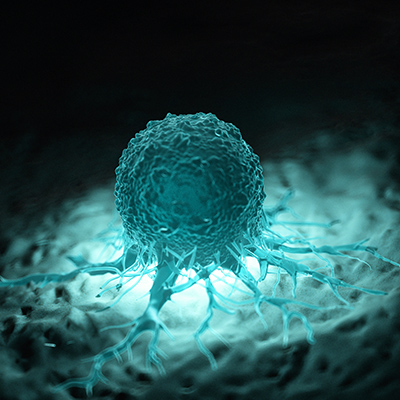January 9, 2023 -- University of Texas MD Anderson Cancer Center researchers achieved clinically significant results for patients with multiple solid tumor types in a Phase I clinical trial using afami-cel, a novel cell therapy approach. The results, published January 9 in the journal Nature Medicine, were noteworthy in a subgroup with synovial sarcoma, a rare, aggressive cancer affecting soft tissue.
Afamitresgene autoleucel (afami-cel; formerly ADP-A2M4), is an adoptive T-cell receptor (TCR) therapy targeting the MAGE-A4 cancer antigen. Afami-cel therapy achieved a 44% response rate compared to a 24% response rate across all cancer types, demonstrating a proof-of-concept for this treatment. Because synovial sarcoma patients have few treatment options following high-dose ifosfamide chemotherapy, researchers consider the results significant.
TCR therapies seek to target solid tumor cells without the toxicity to normal cells often associated with chimeric antigen receptor (CAR)-based cell therapies. Unlike CAR-based cell therapies, which recognize designated surface proteins, TCR therapies like afami-cel target proteins inside the cell. Using the T cell's native receptor, TCR therapies recognize protein fragments -- in this case, from MAGE-A4 -- bound to immune-related cell surface proteins.
The 38 patients treated with afami-cel were 58% male, 92% white, and 8% Asian. There were 16 patients with synovial sarcoma; nine with ovarian cancer; three with head and neck cancer; two each with esophageal cancer, non-small cell lung cancer, urothelial cancer, and myxoid/round cell liposarcoma; and one each with gastric cancer and melanoma.
All patients experienced treatment-related adverse events, most commonly low blood-cell counts. Prolonged cytopenia occurred in 17 patients (45%). Two trial-related deaths resulted in a lowered maximum screening age and discontinuation of the high-dose cyclophosphamide lymphodepletion regimen. The median response duration was 26 weeks across all patients and 28 weeks in the synovial sarcoma subgroup.
The results led to a Phase II afami-cel trial for patients with advanced synovial sarcoma or myxoid/round cell liposarcoma. Early afami-cel results led to another Phase 1 trial evaluating the next generation of afami-cel, called ADP-A2M4CD8, which expresses a CD8 co-receptor with the goal of broadening the immune response in solid tumors.
"The overall toxicity from afami-cel was manageable, and we saw evidence of early activity in other cancer types," said MD Anderson's principal investigator Dr. David Hong in a statement. "These results suggest this is an approach with the potential to work in solid tumors where there are currently no approved cellular therapies."
Disclosure: This study was supported by Adaptimmune, a clinical-stage biopharmaceutical company.
Copyright © 2023 scienceboard.net




